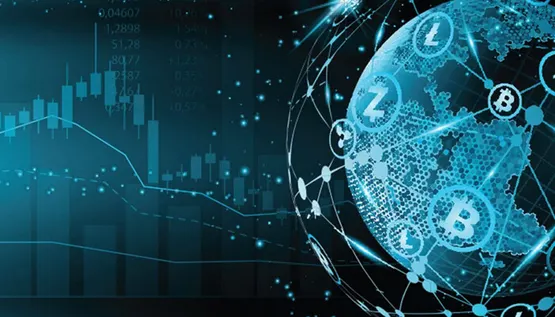DeFi exchange platforms are decentralized platforms where users can trade cryptocurrencies, tokens, and other digital assets directly with one another using smart contracts on blockchain networks. These platforms eliminate the need for intermediaries, such as centralized exchanges, providing a transparent, secure, and non-custodial trading experience.

DeFi exchanges utilize smart contracts, automated market makers (AMMs), or order books to facilitate trades. Smart contracts enable secure and transparent trades, while AMMs offer liquidity pools to facilitate token swaps. Order book-based exchanges operate similarly to traditional exchanges but without centralized control.

DeFi exchanges operate on blockchain networks, leveraging smart contracts and protocols to facilitate trades directly between users. As a result, there is no need for a central authority or intermediary to hold users' funds. This decentralization eliminates the risk of custodial control, reducing the likelihood of hacks, theft, or misuse of funds. Users retain full control over their assets, fostering a trustless environment.
DeFi exchanges are accessible to anyone with an internet connection, regardless of geographical location. Traditional finance often excludes individuals without access to banking services. DeFi exchange platforms break down these barriers, allowing users worldwide to participate in the financial ecosystem and interact with a diverse range of digital assets.
DeFi exchange platforms promote financial inclusion by enabling individuals who are unbanked or underbanked to participate in financial activities. With only a smartphone or computer, users can access DeFi exchanges, opening up opportunities for wealth creation, investment, and financial growth.
Blockchain technology underpins DeFi exchange platforms, making them highly secure and transparent. All transactions and activities are recorded on the blockchain, providing an immutable and auditable history of trades. This transparency helps build trust among users, ensuring that the platform's operations are conducted in a fair and open manner.
DeFi exchanges typically charge lower fees compared to traditional centralized exchanges. With no intermediaries involved, users can avoid the additional costs associated with brokerage fees or third-party services. Moreover, blockchain transactions are faster and settle quickly, enhancing the efficiency of trading activities.
Many DeFi exchanges employ automated market makers (AMMs) and liquidity pools, allowing users to contribute liquidity and earn rewards for their participation. These incentives attract liquidity providers and ensure that the platform maintains sufficient liquidity for smooth trading experiences.
DeFi exchange platforms are open source, meaning that their underlying code is available for inspection, verification, and improvement by anyone. Additionally, users can access these platforms without requiring permission, which aligns with the principles of decentralization and financial freedom.
DeFi exchanges support a wide array of digital assets, including cryptocurrencies, tokens, and stablecoins. This broad range of offerings allows users to access a diverse investment portfolio, expanding their exposure to various blockchain projects and assets.
Unlike centralized exchanges, where users must deposit their assets into a custodial wallet, DeFi exchanges enable non-custodial trading. Users maintain control over their private keys, reducing the risk of potential hacks or loss due to exchange vulnerabilities.
The DeFi ecosystem fosters constant innovation and experimentation. Developers are continually introducing novel financial products and services, such as yield farming, staking, and decentralized lending, on DeFi exchange platforms. This dynamic environment drives the evolution of decentralized finance, providing users with cutting-edge solutions.
Smart contracts are the foundation of DeFi exchange platforms, governing the rules of trading, token swaps, and fee distribution. Developers must ensure smart contracts are audited and secure to avoid potential vulnerabilities and exploits.
An intuitive and user-friendly UI/UX is essential for attracting and retaining users. The platform should offer easy-to-understand features, seamless navigation, and real-time market data to enhance the trading experience.
Sufficient liquidity is vital for DeFi exchange platforms to facilitate smooth trades. Developers must implement strategies such as liquidity mining and rewards to incentivize liquidity providers and maintain a healthy trading environment.
Security is paramount in the DeFi space, as hackers often target platforms with vulnerabilities. Incorporating robust security measures, such as multi-factor authentication, encryption, and bug bounty programs, is crucial to protect user funds and data.
To expand the range of tradable assets and increase interoperability, developers should consider integrating multiple blockchain networks into the DeFi exchange platform. This allows users to trade assets from different blockchains seamlessly.
Scalability and high gas fees are significant challenges in DeFi. Developers must explore layer-2 solutions and scaling protocols like Ethereum's Optimistic Rollups or sidechains to improve platform efficiency and reduce transaction costs.
Navigating the regulatory landscape is essential for long-term sustainability. DeFi exchange developers should work closely with legal experts to ensure compliance with relevant regulations in the jurisdictions they operate.
Security vulnerabilities in smart contracts can lead to disastrous consequences. To mitigate this risk, thorough smart contract audits by reputable firms are imperative before launching the platform.
The DeFi space is highly competitive, with numerous exchange platforms vying for user attention. To stand out, developers must innovate, offer unique features, and focus on user-centric solutions
Conduct in-depth market research to identify target audiences, competitors, and current trends in the DeFi exchange landscape. Analyze user pain points and preferences to create a platform that addresses specific needs.
Assemble a skilled and experienced development team well-versed in blockchain, smart contract development, UI/UX, and security protocols. A competent team is crucial to building a secure and user-friendly platform.
Create a Minimum Viable Product (MVP) to validate the concept and gather user feedback. Conduct rigorous testing to identify and fix potential issues before the full-scale launch.
Engage reputable security audit firms to thoroughly examine the platform's smart contracts and codebase. Additionally, set up a bug bounty program to incentivize the community to report potential vulnerabilities.
Launch the platform with a comprehensive marketing strategy. Collaborate with influencers, conduct promotional campaigns, and engage the community to attract initial users and build momentum.
Listen to user feedback and continuously improve the platform based on user needs. Embrace innovation to stay ahead of the competition and remain relevant in the ever-evolving DeFi landscape.
DeFi exchange platform development is a complex process, but with careful planning, innovative features, and a strong focus on security, scalability, and user experience, one can create a successful platform that thrives in the competitive DeFi market. As the world increasingly embraces decentralized finance, these platforms will play a vital role in shaping the future of finance, empowering users to take control of their financial destinies and driving the broader adoption of blockchain technology.
